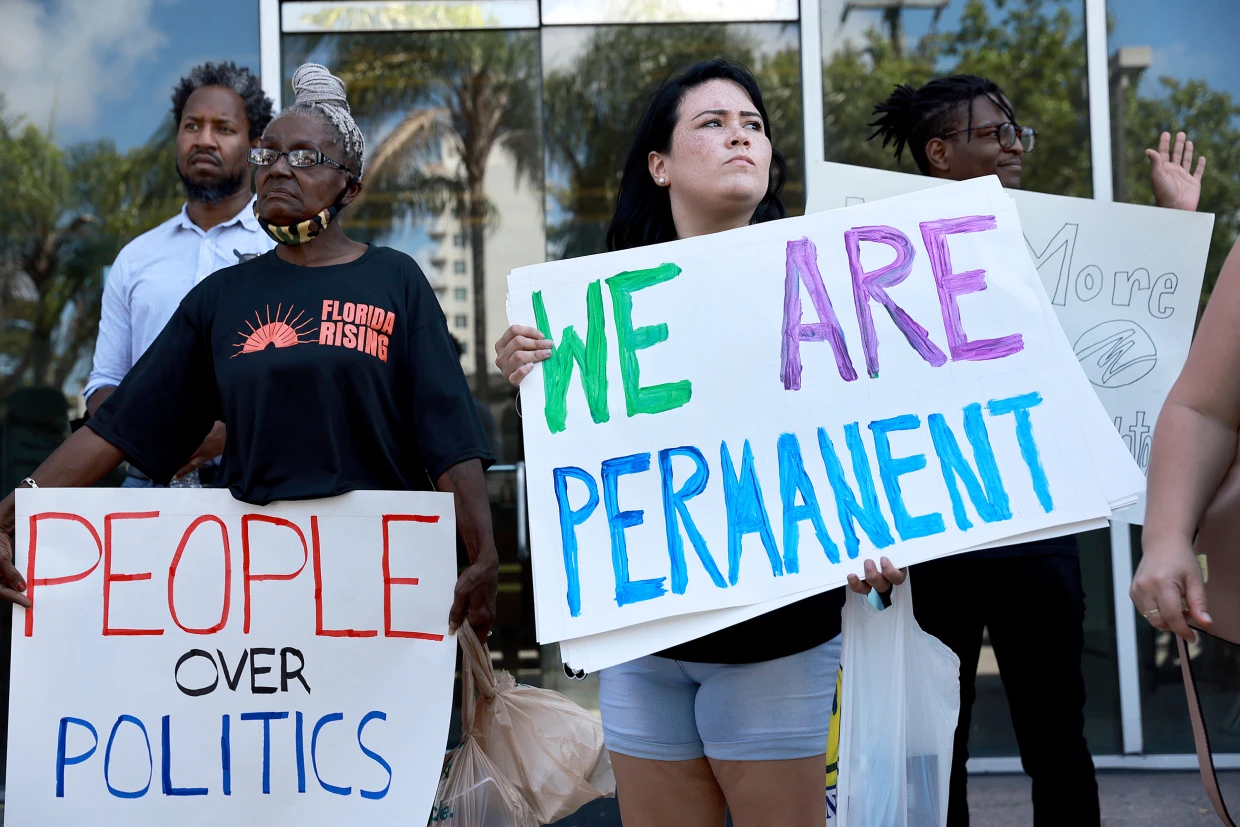The Unlikely Alliance of Transgenders and Transnationals

In recent years, social media platforms have become a breeding ground for right-wing and reactionary discourses to spread hateful messaging with minimal accountability. In this essay, I examine the dimensions of a new conservatism and right-wing discourse emerging on social media. This new discourse challenges the most basic assumptions of conservatism, distancing itself from traditional values and condemning the contemporary neoliberal apparatuses of power. However, it also declares that society has been insidiously infiltrated by gender-based ideology, which it sees as more than identity, but as a power structure that needs to be exterminated. The polarizing algorithms of social media present an unprecedented location for this discourse’s proliferation. These social politics have come to dominate my social media, and its reach appears to influence all young men on online platforms. It is this discourse that underlies a new mechanism of reactionary revolt that has begun to threaten the agency of the LGBTQ+ and other gender-based communities. Using social media as an analytical tool of popular discourse, I argue that the modern large-scale conservative reactionary movement among young men stems from a historico-political discourse that mistakes social activism for a repressive and normalizing power structure. Consequently, this discourse of ‘race war’ begins to shore up a normalized neoliberal allegiance based on tradition, individuality, and hypermasculinity, advocating for government action strictly for the ‘purification’ of the LGBTQ+ community. In this essay, I will explore this phenomenon through posts and videos suggested for me on Instagram that center its discourse on US politics. Alongside this exploration, I collaborate with Henry Giroux’s analyses of changing populist movements, before discussing its underlying mechanisms through Michel Foucault’s concept of ‘race war’. As Foucault expresses, we observe these mechanisms of power “in the cells or the lowest levels of society” (32). The microelements that are revealed by a festering social media reactionary culture divulge the foundational elements of this discourse.
The Phantom of Gendered Power Structures
In the past few years, methods of attention-seeking patterns in social media, and ‘pipeline’ algorithms have become increasingly intrusive. These platforms reflect social opinion back at you in a “feedback loop” (Van Bavel et al., 2021), bolstering the opportunity for new right-wing demagogues to spread social commentary within the guise of entertainment. This has awarded me, ironically, a suffocating number of posts ranging from assaults on the morality of non-monogamous women to a court speaker claiming that “every teacher that has a pride flag in their classroom should be fired and arrested” (Fisherman, 2023). Set to melodramatic music, these posts argue that the ‘emasculation’ of traditional morals falls no short of the full destruction of Western society. One quickly realizes, however, that this conversation distinguishes itself from traditional conservatism. Within this same social media pipeline, it is common to find posts of successful businessmen preaching that “most people are brainwashed[…] to go to school, get a job, work hard, […] buy a house, [and that] everyone who follows that is brainwashed”(TheMinuteMotivation, 2023). This rejection gives up on the classic ‘hard work method’ that has underscored a Western capitalistic identity. Simultaneously, similar posts will condemn Big Oil profiteering from the energy crisis, US foreign military intervention, or the monopolizing power of BlackRock’s investment portfolio (Versluis, 2023). This fascinating discourse appears to reject the ‘American Dream’ and criticizes top-down institutions while basing itself on an anti-progressive foundation.
The background of this anti-corporate and reactionary discourse is considered by Henry Giroux. He argues that the drastic economic inequalities created by neoliberal politico-economic systems have turned people against major American institutions. Neoliberal champions have been unable to uphold a Reaganist faith as the free market stands against chasmic income inequality and a falling quality of life (2021). Consequently, “the young people are saying, ‘You have all been hypocritical. You haven’t been concerned about our suffering, our misery. And we no longer believe in your legitimacy’” (West, 2009, as cited in Giroux, 2021, p.82).
Giroux accurately describes an anti-corporate sentiment, but while arguing that Americans have stopped waiting for livable conditions to ‘trickle down,’ he stresses that this disavowal has failed to create a united anti-capitalist base (2021). He outlines how this was cleverly misdirected from a meaningful rejection of the true underlying apparatuses of oppression. Firstly, neoliberal privatization crippled social institutions, and “as public spheres disappeared, communal bonds were weakened, and […] the social sphere regressed into a privatized society of shoppers in which individuals were atomized, alienated, and steadily removed from public participation” (80). As civic culture was dismantled, individualist Western culture persisted, regardless of evolving top-down criticism. Next, this social doctrine paved the way for “populist leaders [to attack] all vestiges of liberal capitalism while refusing to name neoliberal inequalities in wealth and power as a basic threat to their societies (85)”. The discourse recognizes unfair financial systems yet advocates for ‘beating’ them rather than changing them. In doing so, neoliberalism as a concept of ‘globalism’ or ‘corporatism’ was performatively attacked, while the underlying systems that allowed for these exploitations were still equated to the ‘natural’ mechanics of society. The erosion of social responsibility amidst fierce societal criticism is absurdly expressed through many of the posts that appeared on my feed. One such post slandered JPMorganChase’s gross profits against its low employee salary. The clip shows the company’s CEO unable to defend how lower-level employees could live on these wages. However, the caption of the post did not advocate for institutional reform, it simply stated: “That’s why you need a side hustle” (Fawcett, 2023). Finally, and most significantly, the “anger towards elites and globalization gave rise to […] a right-wing tsunami of misdirected anger, hate, and violence” (Giroux, 2021, p. 73) aimed towards minority groups. By playing off existing prejudice, populist leaders channeled the hatred of elites into anti-institutional sentiments and hostile xenophobic attitudes.
Giroux accurately describes how anti-corporatism and anti-progressivism can coexist; I extend this analysis to the strange phenomenon of the LGBTQ+ community being framed as an oppressive power structure. It is not uncommon that the privileges afforded to marginalized communities, however surface-level, raise the reactionary question: ‘what about our rights?’ What is unique is that Wall Street, Big Oil, and political hegemony are spoken in the same breath as gender identity. One such post joked about how if one found the ‘cure’ for gender dysmorphia, they would be assassinated by the CIA because it remains such a powerful political tool (Weliftinasociety, 2023). Another post argued that “everything is a scam, the financial system, feminism, the war on masculinity. They want people to be stuck inside the matrix” (Heilpern, 2022). This ‘matrix’ of top-down oppression considers gender-based activists to be just as tyrannical as the largest corporate powers. This discourse seems to argue that there exists a regulatory coalition of corporate tycoons, Wall Street giants, climate change scientists, mass media, gay-rights activists, and oil titans seeking to rot away traditional Western values. Consequently, I am concerned with the mechanisms that concoct this absurd alliance, and how structures of neoliberal thought weaponize themselves towards a xenophobic conversation.
Revolution Inverted
Foucault’s conception of the historico-political discourse best describes the underlying mechanisms of this reactionary emergence. In ‘Society Must be Defended’ Foucault separates evolving modern historico-political discourses from previous discourses that prioritized themselves primarily with the working mechanisms of the sovereign. This newfound perspective believes that “politics is a continuation of war” (1976, p. 48); it identifies the constant and pervasive conflict beneath the supposed peaceful structures of power, while critical of the elites who hold this privilege. This discourse does away with the enlightened notion that history is a progressive detail of the movement of politics and political actors; it “cuts off the king’s head” (59). It dismisses the idea of a unitary justice, truth, or rationality, and it embraces the notion that justice is conveniently determined by the powerful. Consequently, this discourse begins to advocate the individual right over any ‘enlightened’ pursuit of a ‘fictional’ unitary good. It says: “power is unjust… quite simply because it does not belong to us” (Foucaut, 73) and pursues revolutionary change for advantage rather than righteousness. Therefore, this individualizing concept of right “divides [society] into a binary mode” (60) of us and them, which Foucault calls a ‘race war’. The race war that Foucault describes is not strictly between races as we commonly conceptualize them, but it is a perspective that starkly divides and hierarchizes society into opposing groups. While even Marx acknowledged the power of this discourse as a ‘revolutionary’ mechanism, it also maintains the neoliberal philosophy of winners and losers in which social success is dependent on ‘beating’ the other.
This anti-elite discourse inevitably begins to say: “We have to defend ourselves against our enemies because the State apparatuses, the law, and the power structures […] are the instruments our enemies are using to pursue and subjugate us” (61). This binary practice of knowledge sees state and corporate institutions as the mechanism for the success of the ‘other,’ the elites, or eventually those of different races, sexualities, and genders. It takes viscously critical stances against power structures but sees them primarily as a medium to implement minority ‘equity’ that ultimately tramples the rights of ‘everyday Americans.’
As performative policy seeks to give LGBTQ+ individuals more rights on paper (holidays, bathrooms), it shores up the idea that the government is in the corner of the ‘other.’ Feminist and gender-based discourses are seen to subjugate men’s struggle, producing a festering bitterness. When social power appears to be in the hands of the LGBTQ+ community, this joint hatred of opposing groups and power structures easily sutures both together as one and the same. This explains how personalities like Andrew Tate, a sort of leader of this discourse, will blame the lack of sufficient public transportation infrastructure in the United States on the power of oil lobbyists (2023), while simultaneously claiming that ‘woke’ gender theory is the toxic religion of this same society (2023). The framework of ‘race war’ articulates how an individualist critique of power mistakenly locates the ‘elitist enemy’ in minority groups.
This sense of individuality necessarily becomes tied up in a normalized masculinity and traditional gender sentiments. As Giroux puts it, the “noxious policies of austerity and privatization [reinforce] a hyper-individualized, masculine, and militarized culture” (93). The idea of a man’s ‘duty’ to provide while accomplishing his goals without complaints is perceived as masculine. This is reflected in a conglomeration of posts from young men that preach physical strength, hard work, and masculine values while explicitly hostile towards gender minorities (Ezdeen, 2023). Thus, gay and gender non-conforming individuals uniquely provide a 3-pronged opposition against this manufactured social normal: 1. Self-presentation (clothes, hair, etc.) of LGBTQ+ individuals contradict schooled gender norms 2. Progressive notions of gender base themselves in social identity while constantly advocating policy change; both of which contradict individualist notions 3. Most recently, the LGBTQ+ community has been formulated as a ‘government institution’ and is invariably tied to power structures.
Unlike other minority groups, LGBTQ+ existence is viewed as a choice, which pins additional responsibility on them for their ‘deviance’. In this form, reactionaries hideously reveal the social character of gender to be a mechanism and manipulation. It underlies hysteria, not identity. Superimposed with a developing hyper-masculine culture, gender ideology is seen to ‘weaken the race’, or as the ‘opium of the masses.’ It is perceived as simply a collection of naive, corporate individuals whose only purpose is to undermine language, dismantle Western values, and unfairly break female sports records.
It is at this intersection between a normalizing society and the discourse of race war in which a ‘state racism’ emerges. This new mode describes how the conversations that lay the bedrock of revolution can be seized by the same structural powers that were criticized and used for an attack against the ‘other’. As Giroux argues, Donald Trump’s authoritarian attempts to heighten his power were only possible due to “a revolt against privileged elites [that] turned in to a movement seething with forms of resentment” (84), a resentment waiting to be unleashed against those most strikingly ‘abnormal’. Politicians feed off normalized prejudice and individualism to cultivate the obsession that this discourse has with sexuality and gender. Fueling this xenophobia, right-wing leaders worked to change the state from “an instrument that one race uses against another [to] the protector of the integrity, the superiority, and the purity of the race” (Foucault, 1976, 81). By invoking the language of superiority, this discourse now advocates not just for the defeat of the ‘other’ in the pursuit of individual power, but the extermination of the other for the ‘health’ of the social body. Consequently, it becomes attractive for this social discourse to reorganize their revolution against the LGBTQ+ identity that threatens ‘social norms’, rather than address the true neoliberal power structures beyond a surface-level critique.
This is not to say that this discourse loses its anti-institutional foundations; as my examples have shown, this remains at its core. It paradoxically criticizes any interference with individual freedom, while advocating for ‘mavericks’ like Trump and the use of a heavy state hand for the elimination of the LGBTQ+. These leaders create a sort of ‘double-think’, where an anti-state mentality can protest ‘state corruption’ yet simultaneously advocate firm government action for the removal of minorities. This discourse appears both libertarian and authoritarian at the same time: it considers itself to be fiercely opposed to the corruption of the higher-ups, but in action, is “all too willing to support a wave of reactionary populist leaders” (Giroux, 84). By attacking the imaginary ‘matrix’ of normalization that centers itself on gender ideology, this discourse submits itself to the real regulatory mechanisms of power.
This double-think manifests a unique racism. By not formally ‘allying’ with state power, it keeps its prejudicial tendencies tied to a revolutionary identity. In asserting that this ‘inferior’ minority group is simultaneously an oppressor, it gives those with more privilege than these communities the opportunity to persecute from the position of the ‘rebel’. It is a horrifying pride that emerges when this discourse sees the communities they attack as powerful, allowing for no limit to the perceived valor in their racist agenda. Foucault asserts that “racism is the precondition that makes killing acceptable” (256). This includes violence, but also a ‘political death’ which casts people out, or “lets die.” In the case of the LGBTQ+ community, this has always come from the position of physical violence, but this community is especially vulnerable to the social erosion of identity. Book bannings, educational restriction, or the solidification of a two-gender system in legislature can contribute to a ‘social death’. It is a denial of personhood that increases the risk of death, expulsion, or social rejection. This community has been historically left to languish against physical assault, the AIDS epidemic, workplace discrimination, and other acts of violence as society works to deny their existence. As this especially vulnerable community is threatened by a radically invigorated racism, the next generation might not see a reduction, but rather an exacerbation of gender-based violence.
This essay does not staunchly defend the methods and modes of social activism in all their forms. A criticism of performative equity that works as a ballet booster unaccompanied by politico-economic reform is justified. However, this essay focuses on investigating the mechanisms of power which allow this critique to suture trans rights to transnationals, and which calls into question the entire legitimacy of gender-based activism. Foucault’s description of ‘state racism’ demonstrates how a discourse that attacks structural systems can so easily be turned into xenophobia rather than revolution. And while fascist forms of violence are already powerful, the revolutionary racist who sees themselves as a downtrodden revolutionary against the ‘tyranny of minorities’ is particularly dangerous. It is this naive and righteous xenophobia which poses the greatest risk to LGBTQ+ communities now and in the future.
Works Cited:
Ezdeen_SV. (2023). God and Satan. Login • instagram. Retrieved April 12, 2023, from https://www.instagram.com/ezdeen_sv/.
Fawcett, J. (2023). Earning Less Than 40K/Year. Instagram. BreakOutCeo. Retrieved April 12,
2023, from https://www.instagram.com/p/CqMTL3sJbOt/.
Foucault, M. (1976). “Society Must be Defended” Picador, New York.
Giroux, H. A., & Giroux, H. A. (2021). The Ugly Terror of a Fascist Abyss and the Politics of
Depoliticization. In Race, politics, and pandemic pedagogy (pp. 73–98). essay, Bloomsbury Academic.
MasonVersluis. (2023). The Enemy. Instagram. Retrieved April 11, 2023, from
https://www.instagram.com/p/CniL5sJjeBN/.
MorpheusMindset. (2022). Why Doesn’t the Us Have Trains? YouTube. YouTube. Retrieved
April 12, 2023, from https://youtube.com/shorts/o4JH_Qugccc?feature=share.
Podcast_Talks. (2023). Woke Religion. Instagram. Retrieved April 12, 2023, from
https://www.instagram.com/p/Co1Y3CgpKHJ/.
Red Pill Awareness. (2022). Destroying Femanism and Its Agenda. Instagram. Retrieved April
12, 2023, from https://www.instagram.com/p/CmxOURIp2zN/.
TheMinuteMotivation. (2023). Most People are Brainwashed. TheMinuteMotivation. Retrieved
April 12, 2023, from https://www.instagram.com/p/Cnme_bbKEO5/ .
unschoolingourkids. (2023). This Agenda is Designed to Sever the Relationship Between Parent
and Child. Instagram. Retrieved April 11, 2023, from https://www.instagram.com/p/CpFiMGcAIFl/.
Van Bavel, J. J., Rathje, S., Harris, E., Robertson, C., & Sternisko, A. (2021). How social
media shapes polarization. Trends in Cognitive Sciences, 25(11), 913-916. https://doi.org/10.1016/j.tics.2021.07.013
We Lift In A Society. (2023). Cia Suppressing the Cure for Gender Dismorphia. Instagram.
weliftinasociety. Retrieved April 12, 2023, from https://www.instagram.com/p/CnIBHz0vF7i/
Read more at By Liam Feldman.
Articles, Cultural Pedagogy, Essays, Public Intellectuals, Social JusticeRelated News
News Listing

By Maya Phillips ➚
Failure to Reeducate: Perpetuations of Cultural Fascism in Post-War Germany
Articles, Cultural Pedagogy, Public Pedagogy
February 9, 2026

By Rosemary Kasiobi Nwadike ➚
Feminist Miseducation in the Afro-West: Examining (In)Formal Gender Indoctrinations
Articles, Education, Resistance, Social Justice
July 11, 2025

